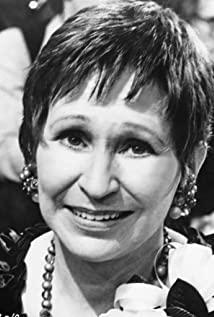Men's stories are always inseparable from women. There are two women here. Like the two women who came to Hercules, they came to Ben. The story of Hercules has no ending, and no one knows which one he chose. Light and sexy Kagia? Or the simple and beautiful Arete? And Ben, who was at the crossroads of his life, made a choice without hesitation, and this choice is exactly what everyone likes to see.
Socrates endows the story with a moral color that was not originally there. The comfort, fullness, and enjoyment of the senses that Kagia expected from Hercules became "evil sensuality", and the toil, heaviness, and beauty that Arete's body expected came true. "Virtue is beautiful". In Socrates' version, Arete said to Kagia: "Although you are immortal, you are indeed rejected by the gods and despised by good people."
In the film "The Graduate", The mother, Mrs. Robinson, represented "evil and lascivious," and her daughter, Ilyin, represented "virtue and beauty." Ben experienced the pleasure of the senses brought to him by Mrs. Robinson, and the beauty of the soul that Ilyin brought him. He resolutely chose the latter and completely rejected the former, calling it "It's just nohing." This proves that Ben is a good man who takes his ethics seriously, as he does when he rejects Mrs. Robinson's seduction at the beginning of the film.
Yet in areas where moral judgment has been put on hold, such as in Kundera's novels, the lithe woman is just a beautiful thing with alluring charisma. Thomas accepted her, and did not fall and lose himself because of it, but actually experienced the floating joy of the body free from the soul. Kundera tried to answer the question that Xenophon thought but did not dare to ask Socrates: Is it really necessary to make the body bear the burden of the soul to be toiled and heavy in order to experience the good life? Is "patient waiting for the desire for good things to happen" necessary? When moving towards a better life, why "can't take shortcuts"? Why can't the road of life be easier to walk?
Sabina, who symbolizes lightness, has been restored to its original color in Kundera's pen, with only a sexy and light body, and no longer needs to bear moral responsibility. Mrs. Robinson, on the other hand, has become a symbol of moral corruption, a corrupt and depraved content of life that an upright young man like Ben would not hesitate to intellectually reject. He would rather carry a heavy soul and obey the guidance of the gods. He tried to completely deny the meaning of Mrs. Robinson's existence and the value of his sensual enjoyment in the happiness of life. In fact, it was he who did not resist the temptation of the body, he obtained light joy, and even the experience of the body allowed his soul to be enlightened, exercised and grown.
Destiny sent these two types of women to men, perhaps just to reveal them, the body and the spirit are indispensable on the road to happiness, but the man used the mouth of Socrates to deny the body morally. And the real life course tells them beyond doubt that the body cannot be completely denied and rejected no matter what. Denying the essence of the body may not be easier to knock on the door of happiness than yielding to the essence of the body.
View more about The Graduate reviews











